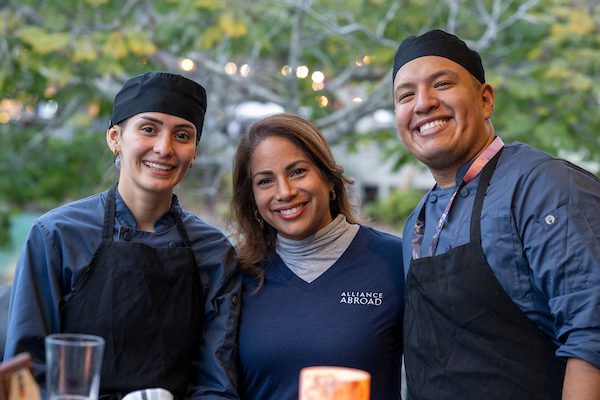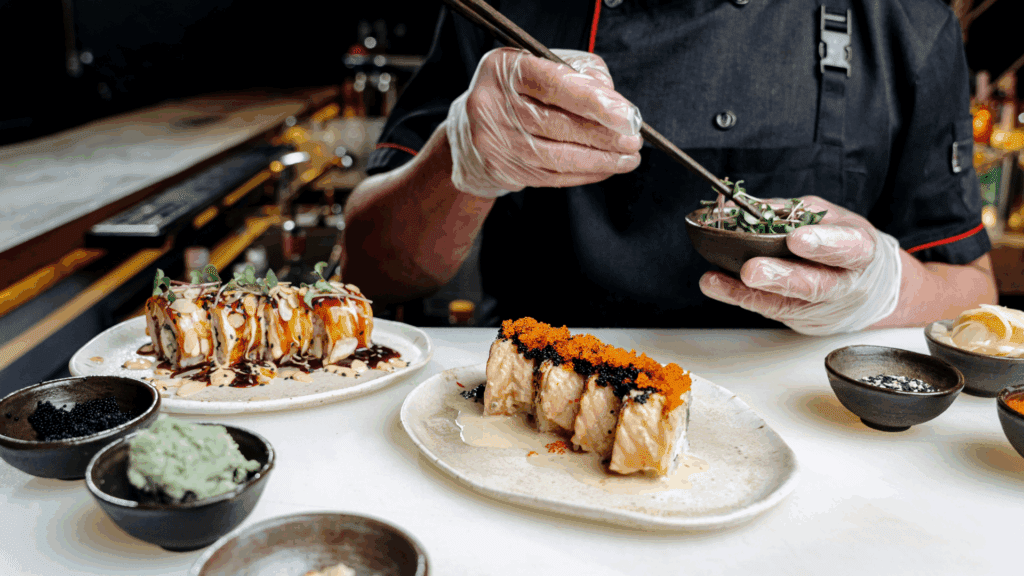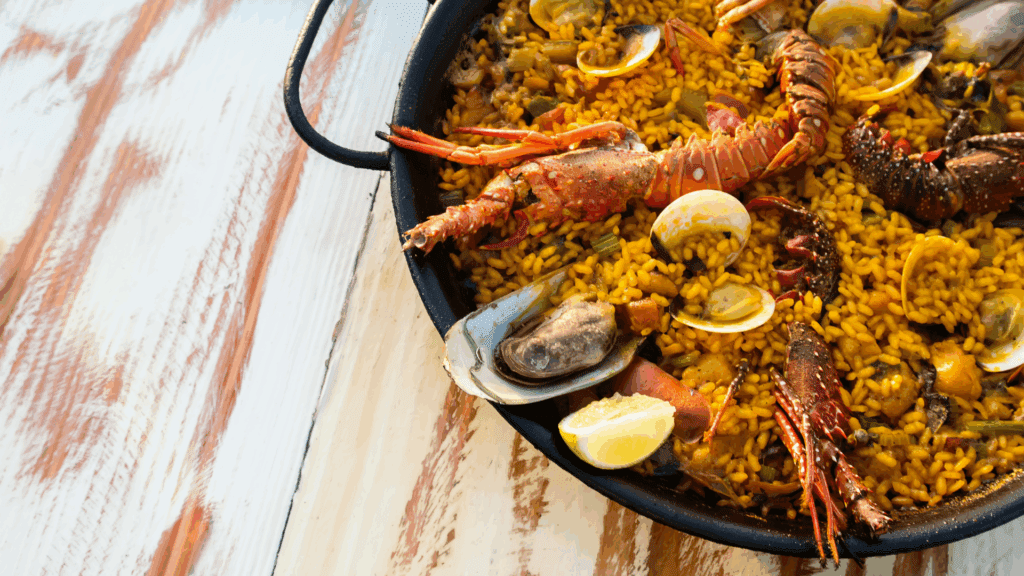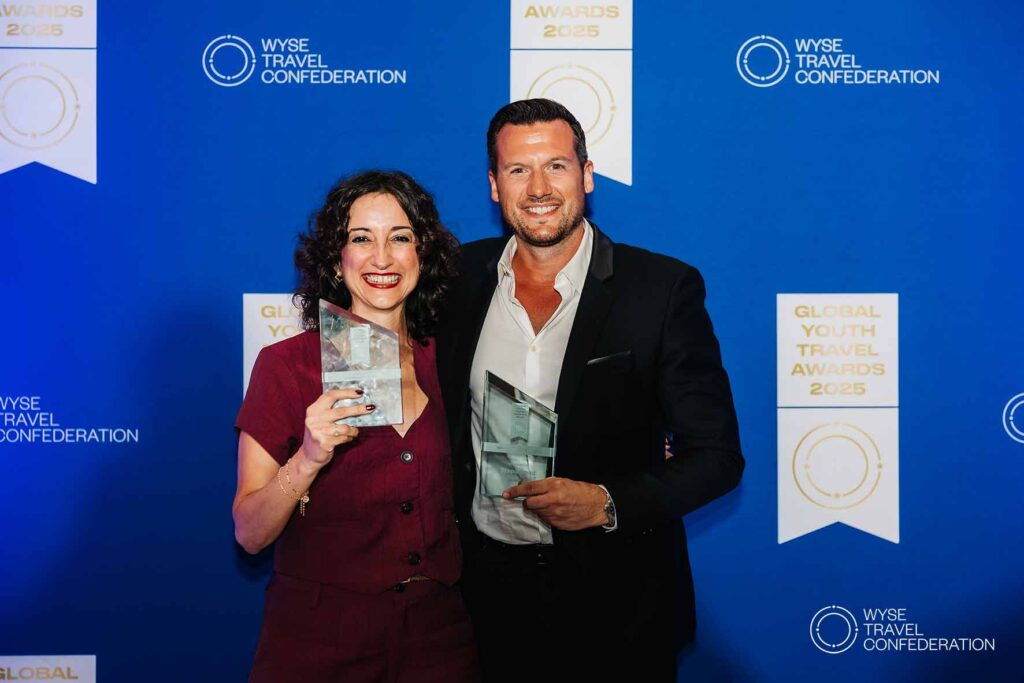Chefs with international experience stand out because they’ve learned to handle pressure, work with diverse teams, and bring fresh ideas to the table (sometimes literally). So to thrive in a global kitchen, you’ll need more than great cooking skills. Flexibility, teamwork, and cultural understanding matter just as much as knife technique or perfect plating.
We’ve made this guide to share with you the essential chef skills for success abroad in 2025 and how you can spice up your resume (and your future) with global experience.
Soft Skills Every Chef Needs to Succeed Abroad
Great cooking skills will get your foot in the door, but soft skills are what help you stay and grow in international kitchens.
Working or training abroad means adapting to different cultures, cuisines, and kitchen styles. The best chefs combine technical ability with strong interpersonal and workplace skills. Here’s a closer look at the chef skills that truly matter when working overseas:
1. Adaptability
Adaptability is one of the most important culinary skills for success abroad. It shows employers you’re ready to jump in and learn fast.
2. Communication
Clear communication is key in any workplace, especially when working with people from different countries. Listening well, giving (and receiving) feedback, and understanding non-verbal cues all make a big difference.
3. Teamwork
A well-run kitchen is like a dance, and every chef has their role. Whether you’re working in a small bistro, or a 5-star resort, respecting your teammates, supporting each other, and staying calm under pressure are must-have chef skills.

4. Time Management
When service starts, timing is everything. Being able to organize your prep list, stay on schedule, and deliver dishes on time is one of the top cooking skills chefs abroad need to master. It’s also a big plus in your resume.
5. Problem Solving
Missing ingredients? A last-minute menu change? Burnt sauce? It happens. Quick thinking and staying cool under pressure are cooking skills that every successful chef develops with time. If you are solution-focused, it’ll show your value in any kitchen.
6. Stress Management
Fast-paced kitchens can be intense, especially in a new country, (plus, doing it all in a different language!). Managing stress helps you stay sharp and helps you make better decisions. This is one of those chef skills that’s not often listed but always appreciated. And, understanding how to manage stress, allows you to fully enjoy the international experience.
7. Cultural Sensitivity
When you work abroad, you’re learning new recipes, but you’re also learning how people communicate, lead, and work. Being open-minded and respectful of different cultures will help you build better relationships with your team and thrive in global kitchens.
8. Leadership
For senior roles, leadership skills matter the most. Like leading a section or managing a team, training junior chefs, managing service shifts, and being a calm, supportive presence in the kitchen. These are the kinds of basic cooking skills that go beyond food. They help your whole team work better together.

From Knife Work to Plating: Must-Have Technical Chef Skills
Strong technical ability is non-negotiable. Whether you’re stepping into a Michelin-starred restaurant in Spain or a fast-paced 5-star hotel kitchen in the U.S., these are the cooking skills that show you’re ready to jump in on day one and keep up with the pace of global kitchens.
Remember: International kitchens expect more than just basic cooking skills. You need the confidence to handle multiple stations, cook with precision, and follow hygiene and safety protocols.
These are some of the must-have chef skills you should master:
1. Knife Skills
Knife skills = culinary skills any chef should master. Such as chopping quickly and safely, boning meat, filleting fish, and maintaining your knives properly. Clean cuts save time, reduce waste, and make prep smoother.
2. Plating & Presentation
How a dish looks matters, especially in upscale environments. From portion balance to plate composition, having an eye for detail shows off your chef skills and helps elevate the dining experience.
3. Cooking Techniques
Grilling, baking, sautéing, roasting, poaching, steaming. These are part of the foundation of international kitchen work and will grow your abilities across different cuisines.
4. Sauce & Stock Preparation
Building flavors from scratch is a sign of strong culinary skills. So, mastering the mother sauces (like béchamel and velouté), as well as knowing how to build rich, clean stocks is a must. These are essentials in many classic and modern dishes.
5. Food Safety & Hygiene
No matter where you are in the world, food safety matters. Understanding how to avoid cross-contamination, maintain proper food temperatures, and follow cleaning protocols is a core part of your culinary skills and professionalism.
6. Prep Efficiency
“Mise en place” is a mindset. You should be able to prep quickly and precisely keeps the whole kitchen running smoothly, especially during high-volume shifts.
7. Menu & Recipe Understanding
International kitchens expect chefs to follow recipes closely, make smart substitutions, and adjust for allergies or dietary needs. It’s one of those basic cooking skills that makes a big difference in daily service.
8. Cost Awareness & Waste Control
Using ingredients wisely helps control costs and supports sustainability goals. Many kitchens today focus on zero-waste cooking, so if you know how to portion properly and reduce waste, you have a valuable chef skill in your resume.
9. Multi-Station Competency
Chefs abroad are often asked to rotate across different areas from grill and pastry to cold prep. If you’re comfortable with a variety of roles, that shows your range of culinary skills and makes you a stronger team player.
10. Global Flavor Knowledge
If you’re familiar with international spices, ingredients, and flavor profiles, it’ll be easier to adapt in new kitchens. Whether it’s using za’atar, gochujang, or chimichurri, showing curiosity and respect for global cuisines is a major plus.
Tip: Highlight these technical abilities on your resume to show employers you’ve got the right culinary skills for international success.

Many of our host companies highlight specific needs when hiring international chefs. Here’s what Sunny Krause, Regional Account Manager, shared:
“For many of our host companies, actual experience working on a hot line is one of the most important chef skills they look for. Knife skills and plating are great, but hot line experience is mentioned much more often. Also, being able to read English well is key. So, chefs can read tickets quickly and correctly during service. As for soft skills, the essentials are adaptability, flexibility, teamwork, and the ability to work independently.”
Global Kitchens, Global Mindset: Why Culture Counts
Cultural awareness is one of the most underrated chef skills, but it plays a big role in how well you integrate into a team abroad.
Respect for Local Ingredients & Traditions
Each country has its own food identity, for example, in Spain, you may be asked to preserve traditional techniques like the slow cooking of paella. In Canada, especially in Indigenous communities or multicultural restaurants, respecting local ingredients and heritage dishes is key. And in Australia, you might discover the importance of native herbs like lemon myrtle or wattleseed. Knowing when to adapt and when to preserve tradition is a vital part of your culinary skills.
Workplace Culture Awareness
In Spain, kitchens can be more formal, with clear hierarchies and titles. In Australia, teams might be more relaxed and collaborative. Understanding different leadership styles and workplace expectations helps you become a stronger team member and builds your global culinary skills for your resume.
Sensitivity to Holidays and Cultural Norms
Respecting how holidays and customs affect work schedules matters (a lot).
In Canada, you might adjust your prep or shifts for national holidays like Thanksgiving (in October). In Spain, festivals like Semana Santa can impact service. If you know how to be flexible and respectful, that’s one of the most valuable soft chef skills you can bring to the table.
At Alliance Abroad, we help each participant prepare for these cultural differences, so you don’t feel lost when entering a new kitchen. We guide you before departure and support you on the job, helping you feel confident and culturally aware from day one.

Language Basics: Working in a Global Kitchen Team
Clear communication prevents mistakes and makes you a more efficient, confident team player. Language plays a key role in our programs. Having at least an intermediate level helps you adapt faster and work more confidently. Plus, mastering culinary terms isn’t only about fluency, it’s about teamwork.
How to Grow Your Chef Skills on the Job
You can study recipes and practice knife cuts at home or in your university, but many of the most important culinary skills are learned on the job. That’s where our programs come in. All our international opportunities for internships, trainee roles ,or skilled professionals give you:
- Hands-on experience in real international kitchens
- Exposure to fast-paced service and global teams
- Structured roles that help you grow faster in your chef skills and soft skills
- Visa and placement support to get started abroad smoothly
We’ll help you show future employers that you’re prepared for global opportunities!
And the best part? You’ll gain experience, confidence, and a clearer vision of your long-term culinary path.
Career-Building Tips to Boost Your Culinary Skills
1. Get Certified
Food safety certifications like HACCP or ServSafe are highly valued in international kitchens. Depending on where you work, local licensing may also be required. If you’re applying for jobs abroad, these show employers you’re serious and well-prepared. Language certifications can also give you an edge, especially when applying for programs in Spanish or French-speaking regions.
2. Attend Culinary Workshops & Expos
Stay on top of trends and sharpen your cooking skills by joining events, masterclasses, or food festivals. These are great places to meet chefs from around the world, try new techniques, and expand your culinary network and stay inspired.
3. Seek Out Mentors
Chefs with international experience can offer insights you won’t find in a classroom. Ask questions, stay curious, and learn from those who’ve worked in global kitchens. Mentorship is one of the best ways to grow both your confidence and your culinary skills for resume building.
4. Document Your Work
Keep your resume or CV, updated and build a portfolio that reflects your best dishes and your growth. Use high-quality photos, track the kitchens and stations you’ve worked in, and show off both your technical and basic cooking skills. It’s your proof of progress and a powerful tool when applying for your next role abroad.
Ready to Take Your Cooking Skills Global?
Step into global kitchens and gain:
- Hands-on cooking skills that international employers value
- Cultural awareness and cross-cultural teamwork
- Language confidence that helps you thrive abroad
- Real-world experience to boost your culinary skills for resume impact
Whether you’re just starting with basic cooking skills or ready to level up your chef career, international experience is one of the fastest ways to grow.
At Alliance Abroad, we help experienced chefs, culinary students, and recent graduates find opportunities in the U.S., Spain, Australia, and Canada, with visa guidance, training plans, guaranteed placements, and 24/7 support abroad. So, are you ready to take your culinary career to a different country?


